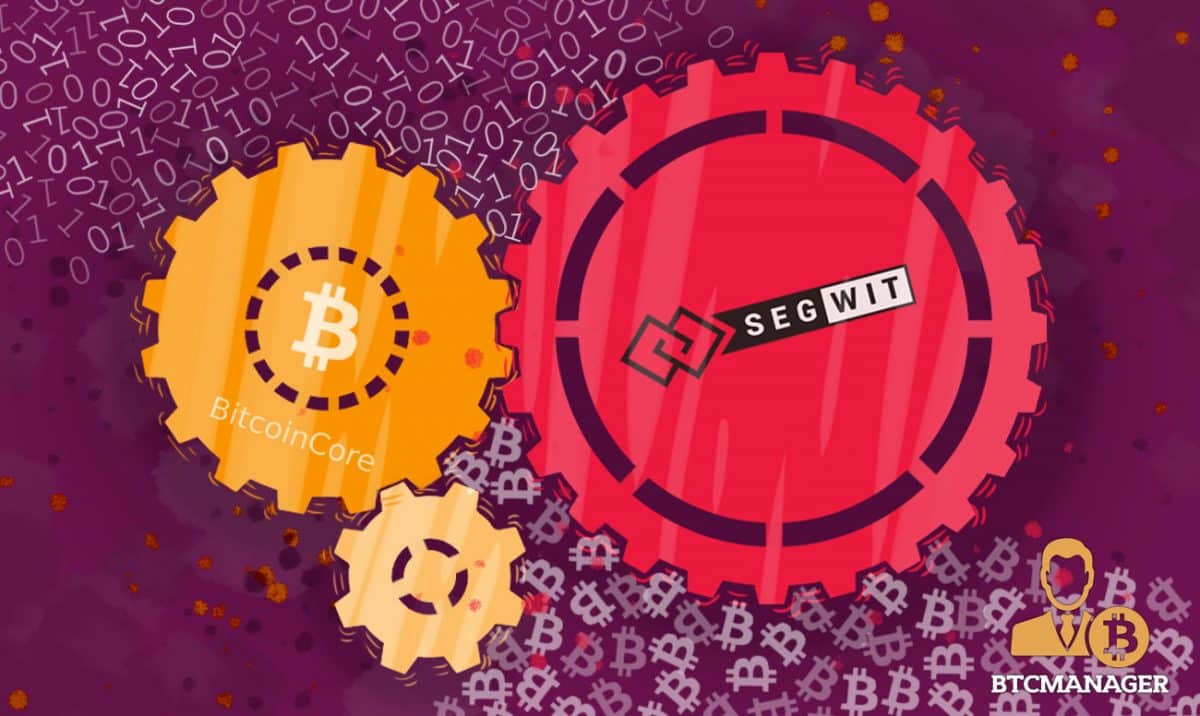Full SegWit Support with the New Bitcoin Deployment (Version 0.16.0)

After much back and forth, SegWit (Segregated Witness) was rolled out in August 2017. It is now prompting developers to assemble an almost “themed” release that will see a new level of congregation for the Bitcoin creator fraternity. Driven primarily by the imperative to scale the network, another serious benefit for users will be the fact that it opens up the possibility of a new layer that is cheaper and faster.
SegWit Addresses to Become the Default
Typically when Bitcoin Core rolls out changes to the digital coin’s code, it’s done on a very piecemeal basis, as disparate groups of developer volunteers merely patch improvements together. The upcoming code enhancement, billed 0.16.0, is the sixteenth big release and is approaching things a bit differently. SegWit has been an on and off promise, with much technical wrangling around the issue. Now it’s finally set to deliver on its promise.
Billed as a “major release,” the Bitcoin Core team will have done some excellent work if all of the mooted improvements extrapolate into an enhanced user experience. Many updates are bundled in this release; most focused on enabling a more seamless dispatch of SegWit-style transactions from the code’s default wallet.
Bitcoin Core 0.16 will enable an SSE4 optimized SHA256 hashing algorithm which will be ~50% faster for x86_64 CPUs and should decrease initial block download time by another 5%.
— Jameson Lopp (@lopp) February 22, 2018
The first SegWit rollout was centered on establishing and broadcasting new rules. This coming launch will be focused on enabling users to take advantage of the benefits of those rules. So, while the first software rollout of SegWit was about making sure the network understood the new rules, 0.16.0 is all about making it possible for users to take advantage of their benefits.
Andrew Chow, a Bitcoin Core contributor, said: “The primary change is the addition of SegWit in the wallet. This [allows] users to easily create SegWit addresses.” Chow confirmed that SegWit features are now added to both the wallet user interface and the command line set, which means both programmers and non-programmers can employ it.
Another Bitcoin Core contributor, Marko Falke, a Chaincode Lab engineer, said that while it had previously been possible to create SegWit addresses in earlier wallets, the process then was “rather hacky” and “mostly hidden.” In a moment of real achievement, they have ensured that the new addresses will be automatically compatible with the scaling feature.
The new release now makes SegWit addresses the default and also means that this is the first release to support “native SegWit addresses,” known as Bech32 addresses. Pioneered by Core contributors Greg Maxwell and Pieter Wuille, it’s a new address format with far better UX than older address types as it supports SegWit automatically.
Falke, for one, feels that this aspect is “the most exciting part of the release.” With SegWit addresses now on autopilot, lower fees should kick in soon for wallet users.
November 2016 was the month that saw Bitcoin Core’s last SegWit released. The ensuing ruckus encouraged a division of two camps with some contributors opting for Bitcoin Cash as a far better project.
With Bitcoin Cash, a strong theme of more significant blocks as the solution to lower fees emerged. Allocating more space to transact, they argued, was a logical solution for Bitcoin and in the hard fork, this concern is eliminated.
Making Progress and Scaling Up
Chow weighed in, saying that an advantage of the native SegWit addresses is that fees are slightly lower, although he noted that because of the feature’s novelty, most wallets won’t yet support it.
Other features of the new release are that users will gain greater usability over their Bitcoin Core wallet. Users will even be able to store wallets in a different data directory if they wish. It is also hoped that SegWit’s erratic messaging will now be a thing of the past.
Bitcoin enthusiasts have been complaining that major vendors are slow on the uptake of improvements, but this is also set to diminish as Bitcoin finally starts making legitimate progress on the road to scaling itself for the world to employ.
We are proud to announce support for SegWit.https://t.co/FTCmRrRo2K pic.twitter.com/Kk2cA71wNN
— Bitfinex (@bitfinex) February 20, 2018
With covert projects within projects, bad politics and seemingly headless groups of competing voices now a thing of the past, the new release is imminent and bodes well for bitcoin as a currency.














